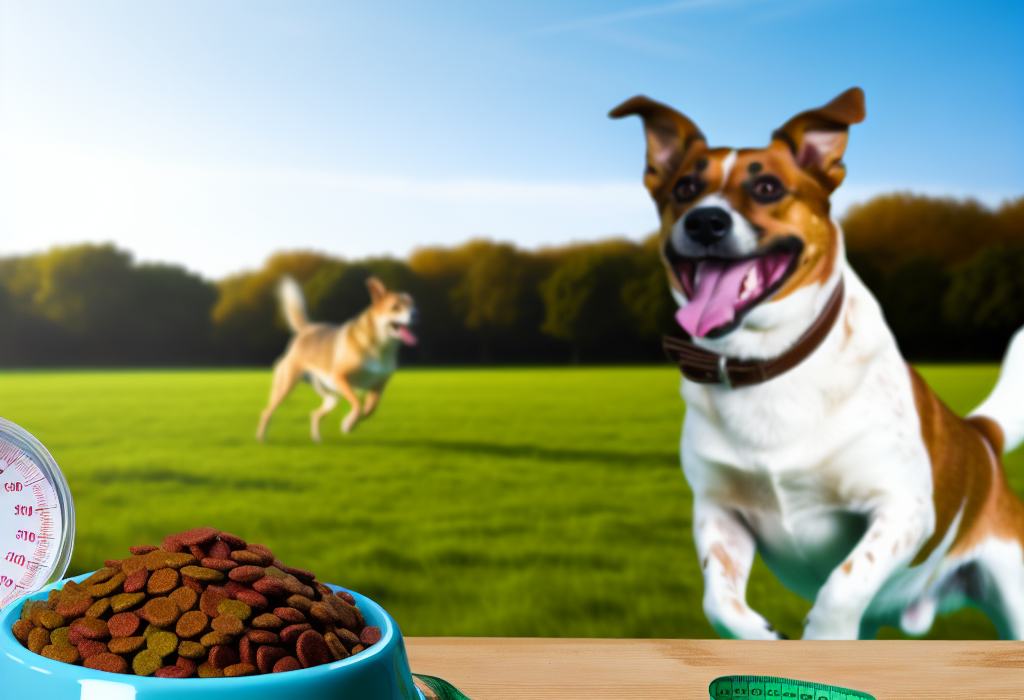
Preventing Canine Obesity: The Risks of Overfeeding and Inactivity

Obesity in dogs is a growing concern, as overfeeding and lack of exercise can lead to various health problems for our furry companions. As pet owners, it is crucial to understand the risks associated with canine obesity and take preventive measures to ensure our dogs lead healthy, active lives. In this article, we will explore the dangers of overfeeding and inactivity and provide tips on how to prevent obesity in dogs.
The Dangers of Canine Obesity
Obesity in dogs can have serious consequences for their overall health and well-being. Overweight or obese dogs are at a higher risk of developing:
- Joint problems, such as arthritis and decreased mobility due to excess weight stressing their joints.
- Heart disease, as obesity can strain their heart and cardiovascular system.
- Diabetes, which can have a negative impact on their quality of life.
- Respiratory issues, as the extra weight can make it difficult for dogs to breathe properly.
- Reduced lifespan, as studies have shown that obese dogs tend to have shorter lifespans compared to healthy dogs.
The Role of Overfeeding
Overfeeding is one of the main factors contributing to obesity in dogs. Many pet owners express their love for their furry friends through food, often resulting in excessive calorie intake. However, it is essential to understand your dog’s dietary needs and feed them accordingly. Factors such as age, breed, size, and activity level should be considered when determining the appropriate portion size.
To prevent overfeeding, follow these tips:
- Measure Meals: Use a measuring cup to ensure you are providing the correct amount of food for your dog’s specific needs.
- Establish Regular Meal Times: Avoid free feeding by establishing regular meal times. This helps regulate portion sizes and prevents grazing throughout the day.
- Choose High-Quality Food: Opt for a balanced and nutritionally complete diet formulated for your dog’s age and size. Consult with your veterinarian for recommendations.
- Limit Treats: Treats should be given in moderation and accounted for in your pet’s daily calorie intake. Choose healthy, low-calorie treats or use alternative rewards like praise or play.
For more detailed information on proper nutrition and feeding guidelines, check out our article on “Feeding Your Dog: A Complete Guide.”
The Importance of Exercise
In addition to overfeeding, lack of exercise plays a significant role in the development of obesity in dogs. Regular physical activity is crucial in maintaining a healthy weight and promoting overall well-being in dogs. Daily exercise helps burn calories, keeps dogs mentally stimulated, and improves muscle tone.
To ensure adequate exercise for your dog, consider the following:
- Daily Walks: Take your dog for regular walks, aiming for at least 30 minutes of brisk walking each day. It provides cardiovascular benefits and allows them to explore their surroundings.
- Interactive Playtime: Engage in interactive play sessions such as fetch, tug-of-war, or hide-and-seek. These activities provide mental stimulation and physical exertion for your dog.
- Consider Dog Sports: Explore dog sports like agility training, flyball, or obedience competitions. These activities can provide fun challenges and keep your dog active.
“Regular exercise is not only beneficial for weight management but also vital for your dog’s mental and physical well-being.” – PawsomeFamilyFur.com
Monitoring Your Dog’s Weight
Regularly monitoring your dog’s weight is crucial in identifying any signs of weight gain or loss. Keep track of their weight using a scale or consult your veterinarian for a professional assessment. Adjust their diet and exercise routine accordingly if you notice any weight fluctuations.
Conclusion
Preventing canine obesity requires a proactive approach to nutrition and exercise. Be conscious of your dog’s dietary intake, measure portion sizes accurately, and choose high-quality food. Avoid free feeding and limit treats to prevent overfeeding. Additionally, ensure regular exercise and provide mental stimulation for your furry companion.
By incorporating these preventive measures into your pet care routine, you can help your dog maintain a healthy weight, prevent obesity-related health problems, and enhance their overall quality of life.
*Disclaimer: This article is for
